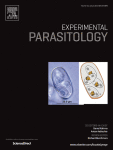Ver ítem
- xmlui.general.dspace_homeCentros e Institutos de InvestigaciónCICVyA. Centro de Investigación en Ciencias Veterinarias y AgronómicasInstituto de VirologíaArtículos científicosxmlui.ArtifactBrowser.ItemViewer.trail
- Inicio
- Centros e Institutos de Investigación
- CICVyA. Centro de Investigación en Ciencias Veterinarias y Agronómicas
- Instituto de Virología
- Artículos científicos
- Ver ítem
Apicomplexan profilins in vaccine development applied to bovine neosporosis
Resumen
Neospora caninum, an intracellular protozoan parasite from the phylum Apicomplexa, is the etiologic agent of neosporosis, a disease considered as a major cause of reproductive loss in cattle and neuromuscular disease in dogs. Bovine neosporosis has a great economic impact in both meat and dairy industries, related to abortion, premature culling and reduced milk yields. Although many efforts have been made to restrain bovine neosporosis, there are still no
[ver mas...]
Neospora caninum, an intracellular protozoan parasite from the phylum Apicomplexa, is the etiologic agent of neosporosis, a disease considered as a major cause of reproductive loss in cattle and neuromuscular disease in dogs. Bovine neosporosis has a great economic impact in both meat and dairy industries, related to abortion, premature culling and reduced milk yields. Although many efforts have been made to restrain bovine neosporosis, there are still no efficacious control methods. Many vaccine-development studies focused in the apicomplexan proteins involved in the adhesion and invasion of the host cell.
Among these proteins, profilins have recently emerged as potential vaccine antigens or even adjuvant candidates for several diseases caused by apicomplexan parasites. Profilins bind Toll-like receptors 11 and 12 initiating MyD88 signaling, that triggers IL-12 and IFN-g production, which may promote protection against infection. Here we summarized the state-of-the-art of novel vaccine development based on apicomplexan profilins applied as antigens or adjuvants, and delved into recent advances on N. caninum vaccines using profilin in the mouse model and in cattle.
[Cerrar]

Fuente
Experimental Parasitology 183 : 64-68 (December 2017)
Fecha
2017-12
ISSN
0014-4894 (Print)
1090-2449 (Online)
1090-2449 (Online)
Formato
pdf
Tipo de documento
article
Palabras Claves
Derechos de acceso
Restringido
 Excepto donde se diga explicitamente, este item se publica bajo la siguiente descripción: Creative Commons Attribution-NonCommercial-ShareAlike 2.5 Unported (CC BY-NC-SA 2.5)
Excepto donde se diga explicitamente, este item se publica bajo la siguiente descripción: Creative Commons Attribution-NonCommercial-ShareAlike 2.5 Unported (CC BY-NC-SA 2.5)

